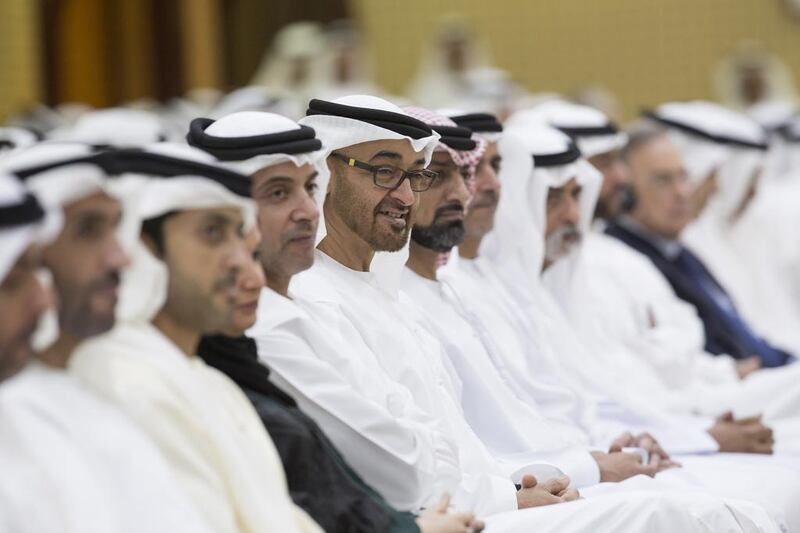ABU DHABI // The Arab world is lagging behind the rest of the world in the digital revolution, a business leader has said, despite its high number of internet users.
Mohamed Alabbar, chairman of Emaar, on Monday night told the Ramadan Majlis of Sheikh Mohammed bin Zayed that the UAE should be more involved in e-commerce.
“In the Arab world, there will be 300 million internet users by 2020,” Mr Alabbar said. “Our lives have become entirely dependent on the internet. We spend four hours a day connected on our mobile phones of which three hours are spent on social media.”
Last year, the total amount spent on e-commerce in the country was Dh7 billion.
“The overall commercial value of trade in the country was Dh600bn and only a small portion of this is traded online,” Mr Alabbar said. “Those numbers are really low and we need to get into the opportunities that the digital revolution is providing.
“Huge global companies collect and aggregate data about our purchase patterns, eating habits, beliefs, friends and financials. They mine that data for insights and over time do a significantly better job than us at targeting our own consumers.”
“The profit pool then begins to shift away from asset owners and towards tech companies leaving us all behind.”
Companies that control the information on consumers control the market, he said.
He cited international online retailers including Amazon, which has a net worth seven times that of the biggest traditional retailers, and Priceline Group, owners of the Booking.com, which is worth more than the five biggest major hotel groups combined.
That said, he did not predict the imminent demise of malls, of which Emaar owns several in Dubai.
“Malls won’t die. People still have the need to go out and look at stuff sometimes but there will probably be less branches” Mr Alabbar said.
In the Middle East, there has been a strong demand for online services.
“Within four weeks of Netflix’s release in the Middle East, it had more users than it did in France,” Mr Alabbar said.
“The solution is to establish our own digital fortresses. We must invest in our growing digital ecosystem and we must build our own services.
“This has been done in China, in Russia and in other countries. It is possible. We must step up and control our destiny for the sake of our children and for the sake of our future.”
Mr Alabbar encouraged investors to invest in start-up internet companies, a lot of which only require small amounts of capital.
The lecture was attended by leaders including Sheikh Mohammed, Crown Prince of Abu Dhabi and Deputy Supreme Commander of the Armed Forces; Sheikh Saif bin Zayed, Deputy Prime Minister and Minister of Interior; Sheikh Hazza bin Zayed, Deputy Chairman of the Abu Dhabi Executive Council; and Sheikh Abdullah bin Zayed, Minister of Foreign Affairs and International Cooperation; and other notables.
nalremeithi@thenational.ae






